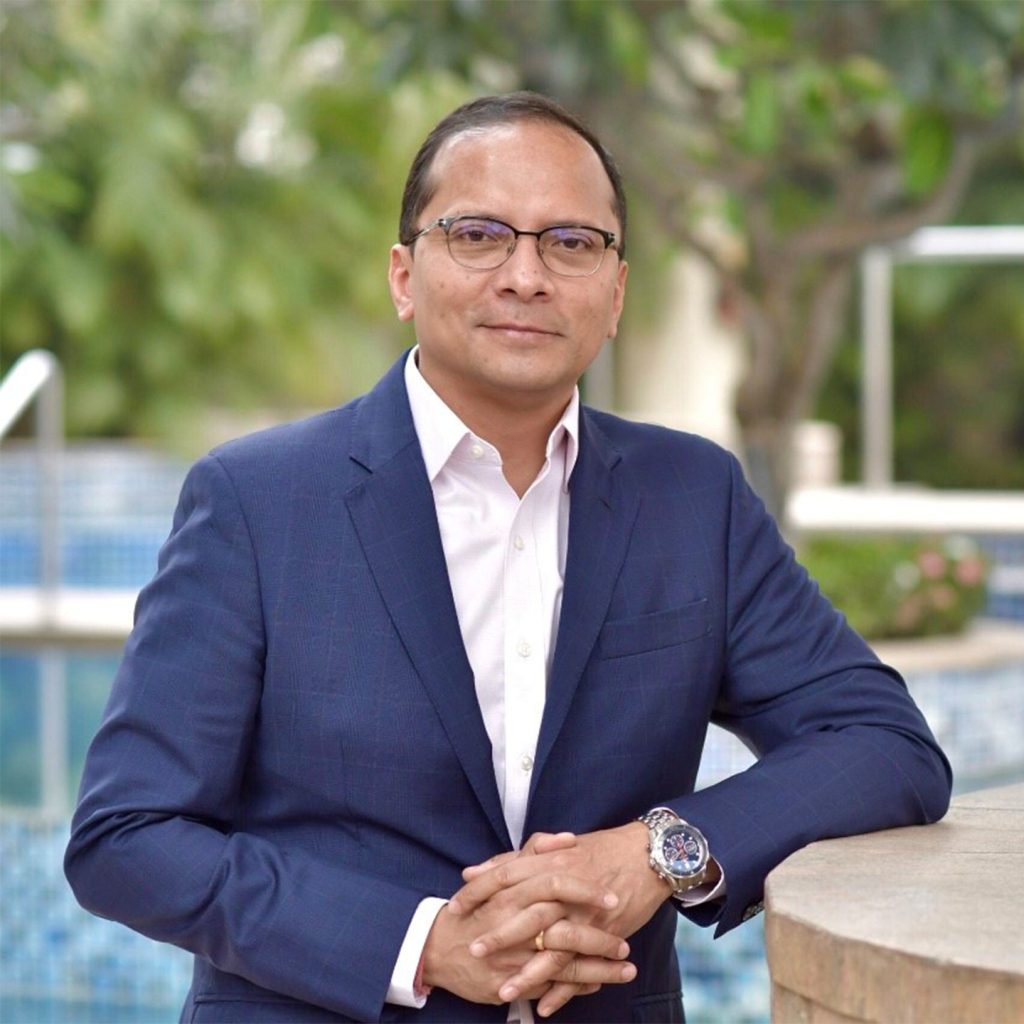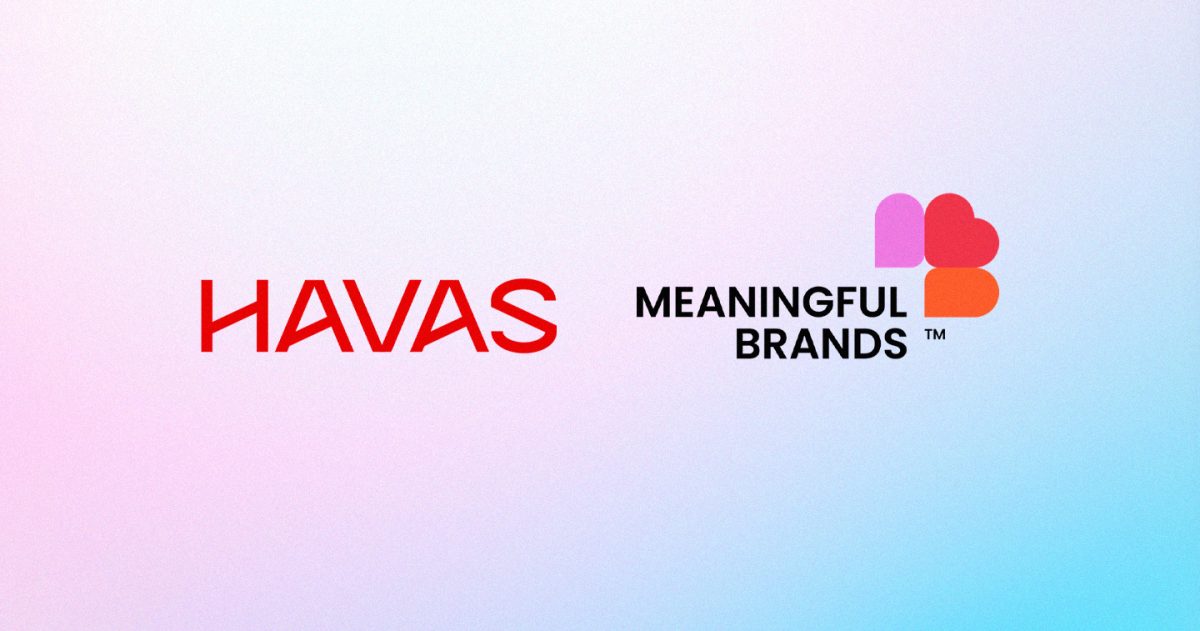MUMBAI, INDIA — The latest edition of Havas‘ proprietary Meaningful Brands 2023 report reveals how consumers have moved from being cynical with “purpose-washing” by brands to an analysis of the relevance of purpose that is more inward-looking and personal. This year, the Global Meaningful Brands study surveyed more than 91,000 people, with over 1300 brands across 10 markets and 42 categories.
“The Age of Cynicism” was announced as the key consumer theme by The Meaningful Brands study conducted by Havas in 2021. It found that consumers were casting a cynical eye and that their trust in brands was dipping at an alarming rate.
One of the biggest takeaways from the 2023 study is that people wouldn’t care if 73% of brands disappeared today.
In India, Google has emerged at the top of 2023’s most Meaningful Brands as a result of delivering strongly on both personal and collective benefits. Others in the top 5 include Amazon (number 2), Youtube (number 3), Whatsapp (number 4), and Flipkart (number 5).
Agenda 2023
How can brands make a meaningful difference, not just to the world around us but also to the lives of consumers, and operate in a manner that empowers consumers by elevating their day-to-day experiences and offering them a sense of control? The answer: the Me-conomy playbook.
Brands must now acknowledge that apart from a sense of purpose, people should be at the center of what brands care about most. Today, brands must become hyper-focused on meeting the individual demands of their consumers.
Consumers are setting new demands on businesses and expectations on brands and rewarding those who meet them. So, while we are in an era where brand purpose and brands doing meaningful work is still important but it’s one where the idea of purpose must become deeply rooted in the daily personal lives and living of people. As people struggle with the personal impact of ecological degradation and economic upheaval, brands must help consumers cope better with these personal challenges.
Which is why: purpose just got personal. 43% of consumers feel that the world is headed in a wrong direction. The ecological and economic crisis is real – what has changed is that 1 in 4 feel this crisis in their daily lives and within those, 62% feel personally affected in multiple ways. And they want brands to do something about it.
According to Havas’ 2023 study, 67% people want to engage with brands that are purpose-focused rather than just profit-driven while 68% say they will stop buying from companies that do not respect the planet or society.
Yet, 58% don’t think brands are being transparent about their commitments and promises and 65% are tired of brands pretending they want to help society when, in reality, all they care about is making money.
The fact is that while consumers are willing to take steps including personal sacrifices, brands are not yet measuring up on these two parameters. Consumers are keen to take individual accountability and be the agent of change themselves, with 3 out of 5 saying that they are prepared to make personal sacrifices to save our planet and 66% admitting that they have begun changing their behavior to adapt to the environmental pressures the world is facing today. The need of the hour is for brands tap into the pulse of their consumer base and connect with them personally.
In India specifically:
- The Most Meaningful Brands perform 39% better than average brands when they deliver on personal benefits. 69% of consumers believe brands should help with their health and wellbeing, whether it is physical, mental, or spiritual. Brands that want to stand out must also exhibit resilience and positivity, especially in the face of crises.
- One of the biggest insights revealed by the study is how the newest kids on the consumerism block, Gen Z, value positivity and the need to put themselves first. High scores show that Gen Z is not just the happiest (71%) and most optimistic (70%), but they are also very determined in expressing their sense of self. Brands that help them express their individuality meaningfully outperform other average brands by 66%.
- There is also a strong tendency among consumers to be positively inclined towards brands and businesses that help simplify and streamline consumers’ lives – so much so that compared to the average brand, Meaningful Brands perform 60% better in improving consumers’ Quality of Life.
Another dimension that strongly contributes to consumers’ Quality of Life is the sense of control. With the pandemic as part of our recent and turbulent history, it is understandable why control emerges as a top dimension that brands should consider. Emphasis on factors like a brand “helps me feel more in control of my day-to-day life” and “enables me to be smarter with my money and/or time” are indicative of consumers’ growing desire to draw a sense of security and certainty from brands which they perceive may be within their locus of control.
Most Meaningful brands ranking: India vs. the world
- In India, Google has emerged at the top of 2023’s most Meaningful Brands as a result of delivering strongly on both personal and collective benefits. It is not surprising given Google’s enhanced role in the daily lives of people – be it financial transactions (Google Pay makes an appearance in the top 10), connections on call, or the vernacular voice assistant. Google as a brand has a higher share of everyday life transactions of consumers and is at the forefront of helping them achieve their personal goals and aspirations.
5. Not only do the most meaningful brands make consumers’ lives easier but also make the everyday more enjoyable by driving interpersonal engagement. Others in the top 5 include: #2 Amazon (85.74), #3 Youtube (85.52), #4 Whatsapp (85.27), and #5 Flipkart (83.04).
So, what is the new playbook for Brands to become more “personally relevant” and meaningful to people?
- Make wellness universal: To make mental and physical wellness universal and democratize aspirational lifestyle benefits.
- Help me feel more: To enable people to do and feel more as inspiration for new behaviors and ideas.
- Seamless: To make it all super-seamless and remove barriers by making consumer lives easy.
- Access: A new view on value – affordability for access. Brands must endeavor to offer products and services so more people can reach them. In Havas’ Meaningful Brand’s study, value and a range of products ‘that best fits my needs’ ranked as key attributes among in the 2023 survey.
- Do more, show-off less: To position purpose-driven activities transparently with honesty, humility, and humor.

Rana Barua, Group CEO of Havas India, said, “The world has changed from 2021 to 2023 and this year’s Meaningful Brands India report couldn’t have come at a more opportune moment. Although we see large-scale global trends emerging, it is the market specifics and category insights that truly set this study apart. Over the years, we have won many key clients on the back of the knowledge we have drawn from this proprietary study, and we continue to leverage it to take action to bridge the gap between consumer expectations from brands and their experiences. Staying ahead of the curve is given when we have a tool as robust as the Meaningful Brands study.”

Sanchita Roy, Chief Strategy Officer of Havas Media India, said, “Our new Meaningful Brands study has put the focus back on consumers. The study finds that brands that have understood how to be meaningful in the lives of consumers are significantly outperforming the market across parameters including driving a greater share of wallet, generating higher KPIs, and also delivering top and bottom-line growth. Brands can effectively leverage our findings to make their consumers feel empowered, engaged, and enabled.”
Anirban Mozumdar, Chief Strategy Officer of Havas Creative India, added, “While it is important for brands to deliver functionality and to be socially responsible, the personal element has gotten missed out. Between solving a skin problem and helping save Orangutans in distant Borneo, brands and marketers have forgotten the personal and immediate payoff for those we serve, beyond mere functionality and the tokenism of a distant good. Consumers want brands to support their personal quest for health and wellbeing, bringing optimism and energy, standing with them with shared resilience and positivity – above all, helping express themselves as individuals. With so much going wrong and out of control, they want brands to simplify and give them some control over their lives.”








